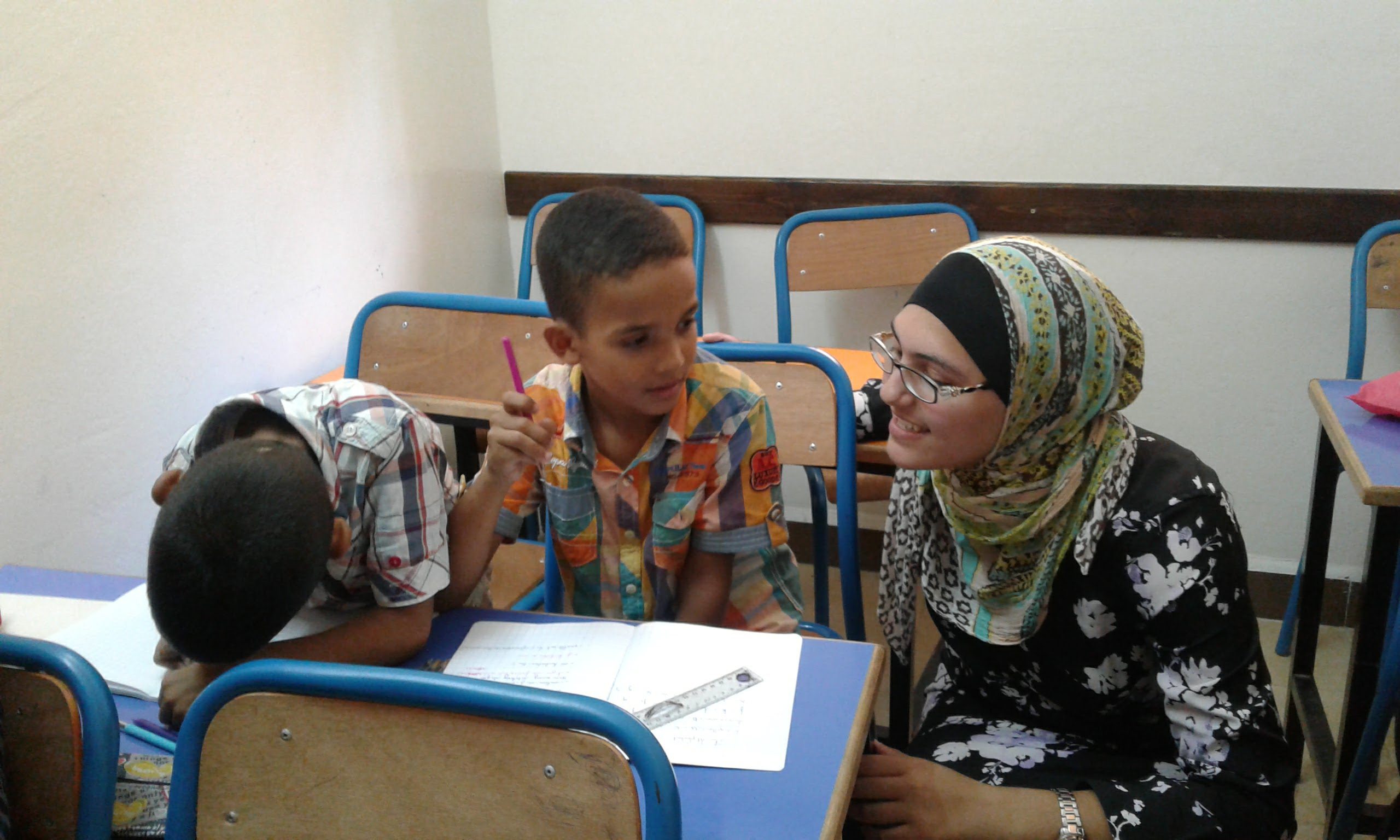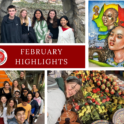StoriesBack to Stories
Learning and Teaching

By Eman A. (YES Abroad 2017-2018, Morocco, from Ypsilanti, Michigan)
One of my favorite opportunities in Morocco has been volunteering with the Salé Association for Sustainable Development (SASD), an NGO started in 2012 in Rabat’s sister city to support public service in the areas of education, elderly aid, and youth engagement. The SASD plans to build a large center that will serve the general population and provide more opportunities to youth for education in areas where they often struggle because of the quality of public school education.
I teach English to both elementary school students and high school students with some of my peers from the NSLI-Y program. Together, we plan lessons each week to provide our students with a variety of subjects. We try to engage the students, specifically those in secondary school, with learning beyond the standard textbook. In a way, our classroom is tri-lingual: we use English, French, and Arabic in order for the students to learn. It is interesting to see how all of our students may use these languages differently in their daily lives, whether it be the 17-year-old in his final year of high school who knows more English than French because of how the school operates or the six-year-old who grew up in France and doesn’t even know colloquial Arabic.
Every session we try to plan new activities, whether it be dancing to the “Cha Cha Slide” to learn directions, a Japanese children’s game to learn fruits and vegetables, or a session of hangman based on a theme to learn spelling. The children enjoy this and, although the teenagers are often reluctant to play these games, they eventually join in and enjoy them, which contributes to more possibilities for their own learning through music and art.
Before ever being able to run a classroom effectively, there were many struggles along the way. Many students, especially the younger ones, had no enthusiasm to learn English, so we often ended up repeating the same lessons over and over. At times, there seemed to be a lack of organization; many students who weren’t learning English or had other work were often placed in our classroom and we’d end up branching out to them and offering help with French grammar, math homework, or at times, even reading the Qur’an. Other problems included a lack of communication about class time changes or cancellations and an initial disarray of skill levels and ages.
As native speakers, I feel our time at this association has been worthwhile despite the challenges. For the younger students, we’ve paved a way to a foundation in English, especially since the majority will start official English-language classes in their coming years. For the older students, we’ve created a way to practice English in a helpful and productive environment to improve their comprehension level and apply what they learn in class to real-life situations. Additionally, we’ve created a more organized approach to English with lesson plans and separate sessions for primary school students and high school students. We’ve also been able to teach about American culture through themed lessons such as Halloween, Thanksgiving, and Christmas.
Despite our previous struggles, I’ve come to realize many fundamental things: asking for teaching advice and translation is beneficial, calling before going all the way to Salé via tram and then taxi because you won’t know if they’ve canceled class is absolutely required, and nothing trumps the feeling of having what you taught finally click with your students. One student (and comedian) of mine in particular, Mohammed, age 7, had proven to be a difficult learner, with no previous knowledge of or interest in English. After all these months of teaching, he could finally answer “What is your name?” without stumbling, and it was the most gratifying moment of my life.
And maybe most of all, I learned a lot about how hard it is to teach, but also that you don't have to be a perfect teacher to do so. Making the experience enjoyable for your students makes it more enjoyable for yourself, which can create connections with your students you never knew were possible, even if the boundaries of culture and age exist.





